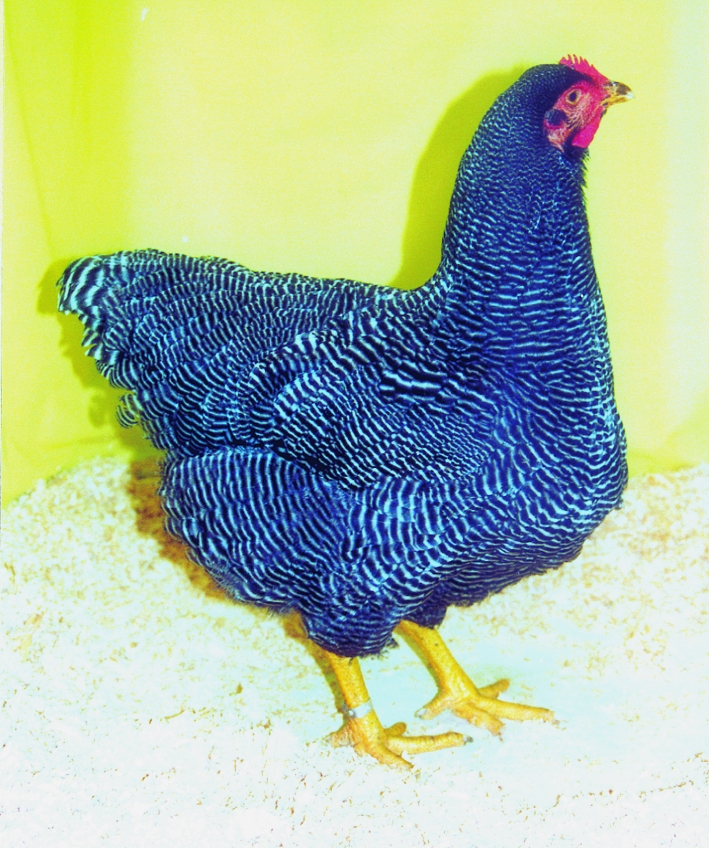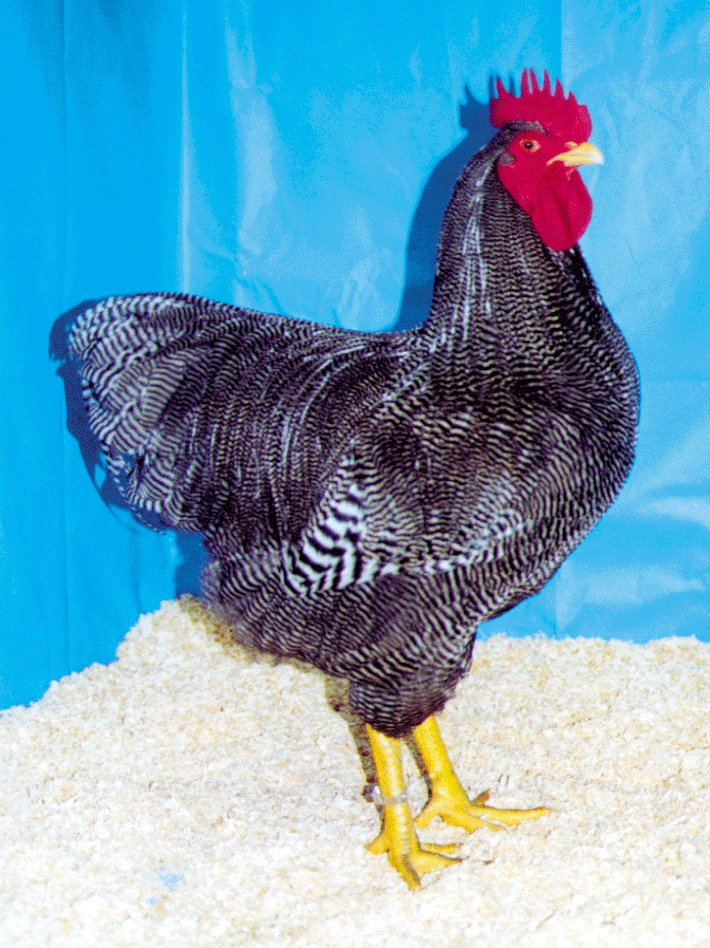Plymouth Rock

Plymouth Rock, Female
Plymouth Rock
The Plymouth Rock is a very popular breed in the United Kingdom and the United States of America. It is a friendly, hardy, dual-purpose breed, which was originally used to produce commercial broilers. This breed demonstrates great mothering skills and on average produces 160-180 eggs per year. Due to these qualities, the Plymouth is an ideal bird for beginners.
Plymouth Rocks are large, long-lived chickens and there are many varieties. Some varieties are good layers while others are bred principally for meat. They have a long, broad back with a moderately deep, full breast. Their skin and legs are yellow. The face of a Plymouth Rock is red with red ear lobes, a bright yellow beak, bay-coloured eyes, and a single comb of moderate size. Their feathers are fairly loosely held but are not so long as to easily tangle. The hens usually make good mothers, have a deep, full abdomen (which is a sign of a good layer) and may show broodiness.
Plymouth Rocks tame quite easily because they are generally not aggressive. However, some males and females are big and active enough to be quite a problem if they become aggressive.
Breeders should be aware of the standard weights for the breeding pen. Characteristics to avoid when considering breeding include a shallow breast, small or narrow birds and birds with high tails.

Plymouth Rock, Male
Classification
Soft feather – heavy
Appearance
Barred (white with a bluish tinge), black, buff, Columbian(restricts black pigmentation to neck striping, wing markings and tail) and white.
Average Weight
| Cock | 3.4 – 4.3 Kg |
| Hen | 3.0 – 3.4 Kg |
| Cockerel | 3. 65 Kg |
| Pullet | 2.7 Kg |
Bantam Variety Plymouth Rock
| Rooster | 1.4 Kg |
| Hen | 1.2 Kg |
Egg Colour
Brown & cream/tinted

